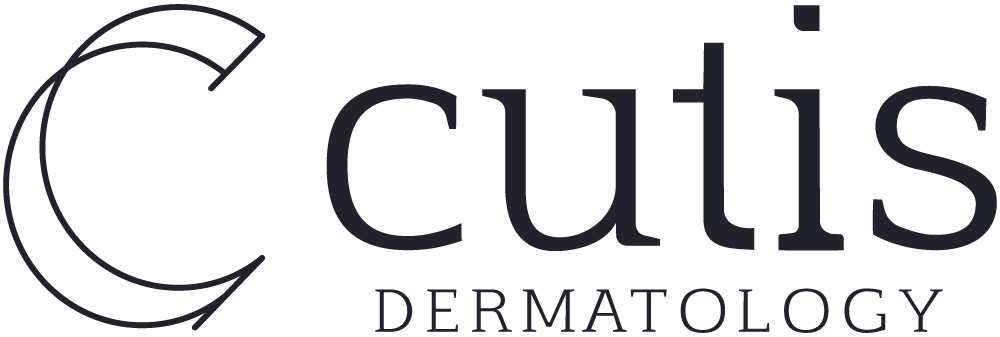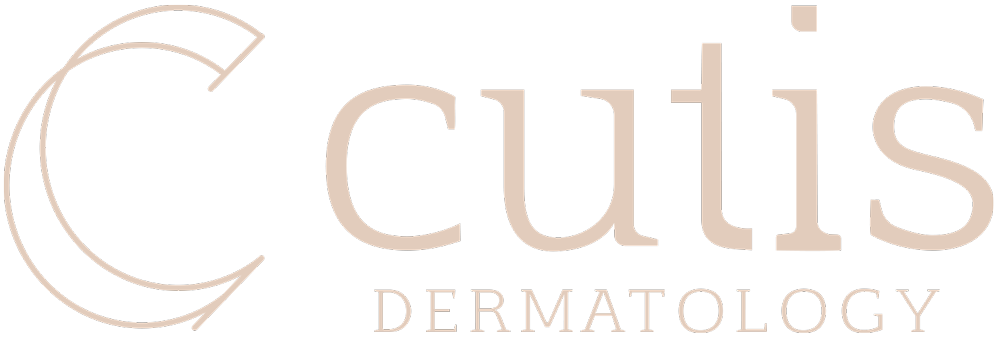Our dermatologists provide comprehensive diagnosis and management for problems of the skin, hair and nails. We offer thorough skin examinations for cancerous and precancerous conditions, often using dermatoscopes for more precise detection of skin cancers.
Our wide range of skin checks include:
- Basal Cell Cancers
- Squamous Cell Cancers
- PDT – Photodynamic Therapy
- Mole Checks
- Mole Removal
- Seborrheic Keratosis
Our results speak for themselves
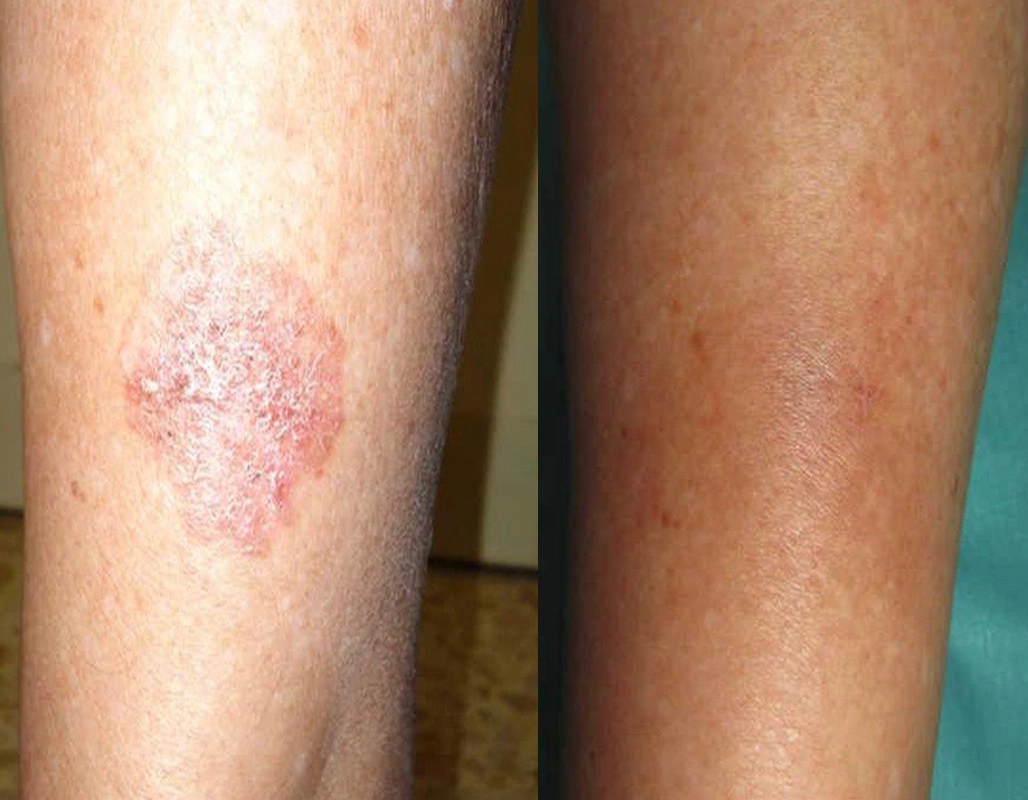
Before
After
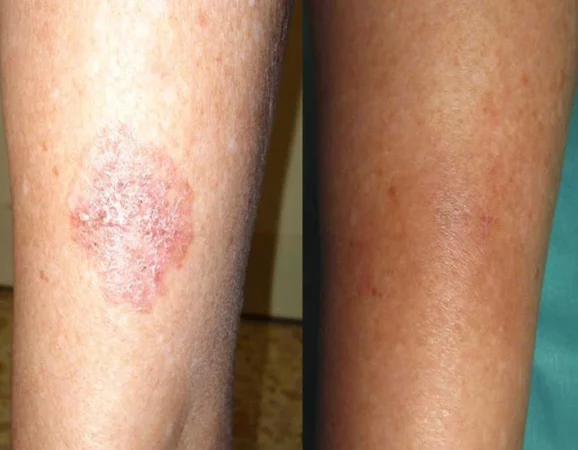
Photodynamic Therapy can treat IEC &
superficial BCCs. 2 sessions spaced 2-6
weeks apart
Ask us more about this treatmant
Preferred Consultation
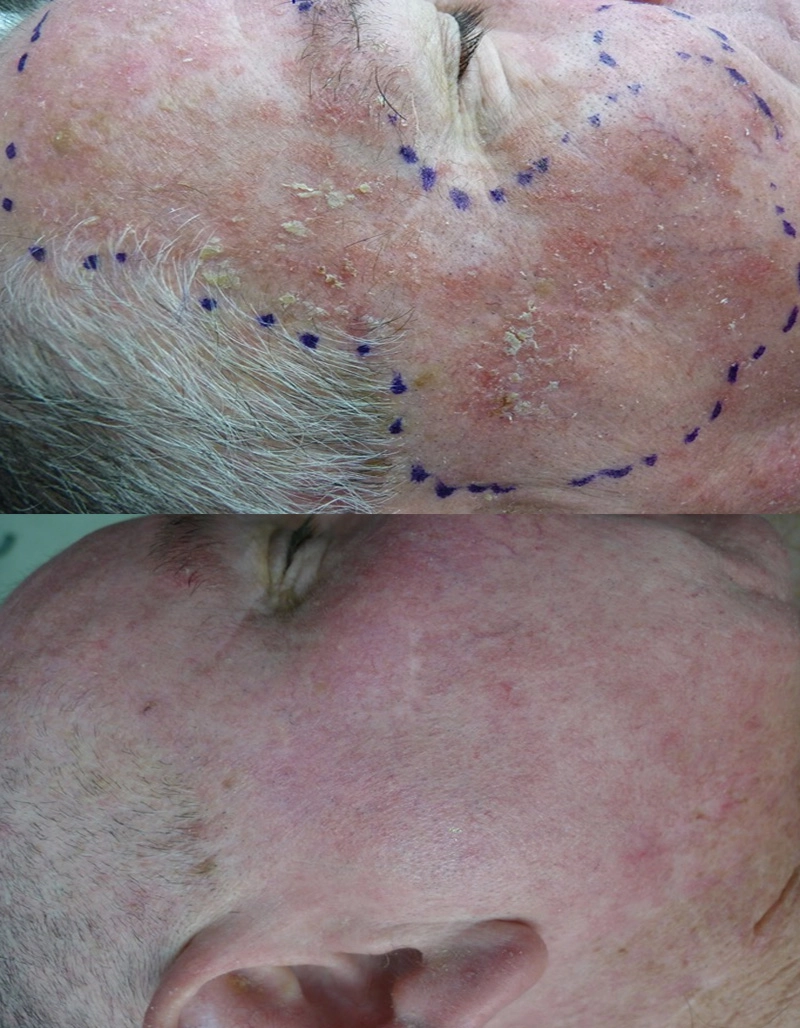
Before
After
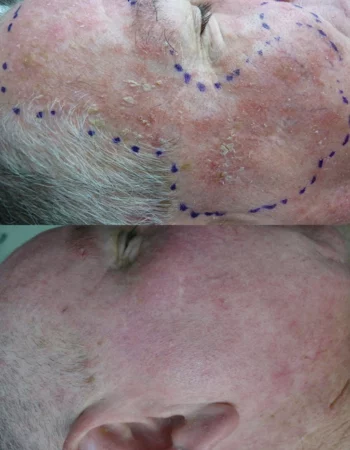
Photodynamic Therapy, thulium assisted
for solar keratosis. PDT is covered under
DVA
Ask us more about this treatmant
Preferred Consultation
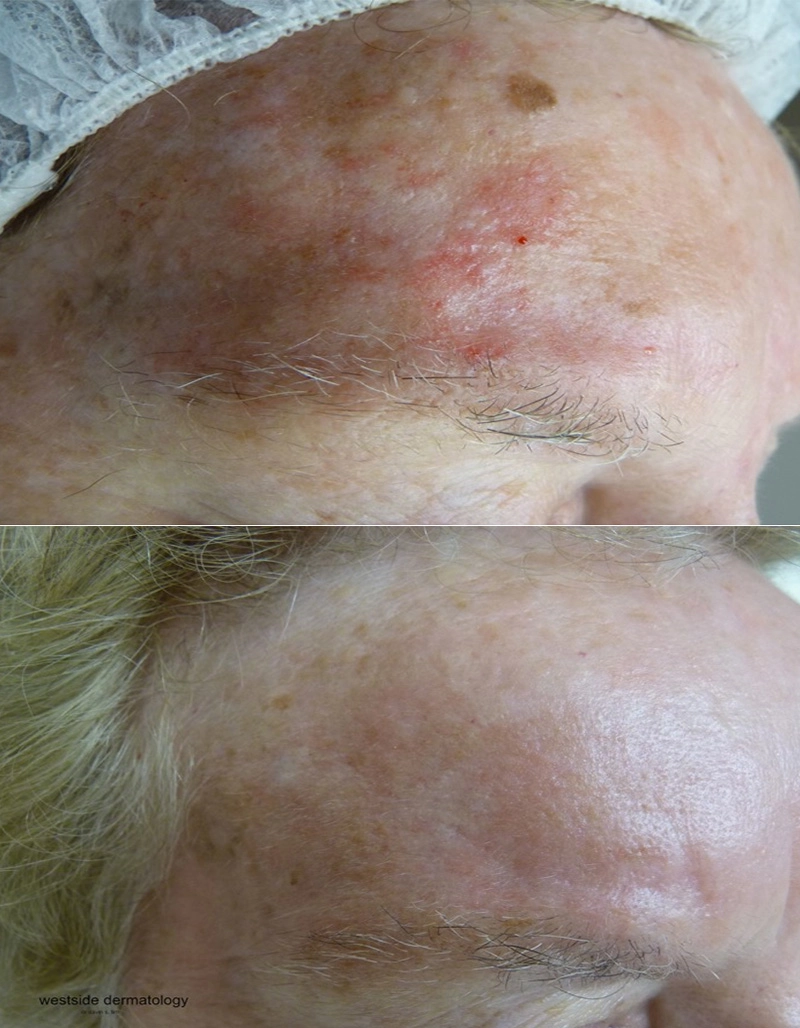
Before
After
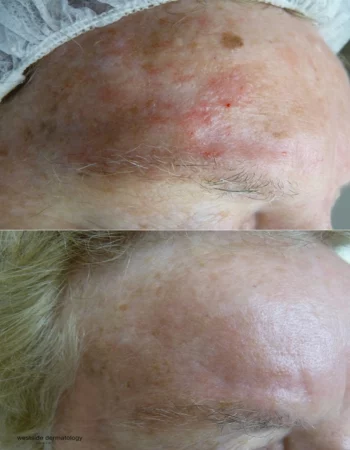
Photodynamic therapy, 2 sessions
Ask us more about this treatmant
Preferred Consultation
Skin cancer conditions we diagnose and manage
Military dermatology experience
Dermatology & skin cancers
Our team is committed to providing the highest level of dermatologic care to patients. We provide comprehensive diagnosis & management for problems of the skin, hair & nails. Our dermatologists have worked with DVA, area health & the Defense Department since 1997. We deal with simple skin checks, to high level DVA claims in Federal Courts.
Our dermatologists are experienced in the removal of skin cancers as well as other benign, common lesions such as moles & cysts. All our procedures are performed in our clinic under local anesthesia.
Skin Cancers & military service
PDT for sun spots
Ex-servicemen & women receive more occupational UV exposure than their civilian counterparts. This predisposes them to sun damage including solar keratosis as well as skin cancers including basal & squamous cell cancers as well as melanomas.
If you hold a Gold or White Card for skin conditions, you are entitled to see a dermatologist for skin checks
PDT or photodynamic therapy is a non-surgical way to treat skin cancers & sun damage, including solar keratosis. This treatment uses a low level laser to activate a light sensitive gel. DVA patients are entitled to this treatment at no out of pocket charge, providing treatments are supervised by a specialist.
Our dermatologists have extensive experience in military dermatology, having co-authored annexes on skin conditions & treatments. We have the expertise to deal with difficult cases of skin cancers & chronic sun damage.
FAQs
How experienced are we with DVA claims & reports?
Our team has had nearly two decades of experience dealing with both the Department of Defence & Department of Veteran Affairs.
Dr Davin Lim has been the go-to dermatologist for area health since 2006 & was the primary investigative dermatologist for the deseal/reseal F111 program. He has completed over 200 high level reports in this time.
What is involved in a medicolegal report?
Our dermatologists can provide a written report about your skin related issues brought on by service. This report addresses how your skin has affected you whilst in the military & how it affects you now & in the future.
How long are DVA medico legal reports?
It depends on the forms & questioning. It can take as little as 15 minutes to complete, or conversely an in-depth report may take up to 4 hours.
What do we cover in a DVA report?
Your dermatologist will already have been given many documents relevant to your claim. Be prepared to discuss-
- How your skin ailment came about
- What treatment you have had both in the military & civilian life
- Any investigations
- Your current medication
- Medical and accident history
- How the injuries affect you day-to-day, both at home and at work
- A physical examination is often conducted on the day
What types of DVA reports do we cover?
We address all types of claims, including-
- Liability
- Permanent impairment
- Impact & incapacity on ADLs/ activities on daily living
- Fitness for duty assessments
How do we assess impairment from a skin disorder related to service?
In the evaluation of impairment resulting from skin disorders the actual functional loss is the prime consideration, rather than the extent of cutaneous involvement.
Examples are-
- 0% WPI The condition is absent on examination or if present can easily be reversed by appropriate medication or treatment AND causes no interference with activities of daily living when present.
- 5% WPI The condition requires treatment for lengthy periods AND causes no interference with activities of daily living when present.
- 40% WPI The condition requires treatment for periods in aggregate up to 4 months per year AND causes major interference with activities of daily living when present.
How do we assess facial disfigurement from skin cancers related to military service?
When evaluating impairment due to facial injury such as excision of skin cancers related to military service, our dermatologists will consider 3 main factors.
- Functional components are considered. Examples include the impact on eating, communication & respiration.
- Cosmetic effects should be considered. Cosmetic defects should be assessed when all feasible cosmetic operations have been completed. Examples include the visual effects of scarring from trauma & most commonly treatment of skin cancers involving the face & neck.
- Facial disfigurement may result in behavioural changes. This aspect of impairment looks at “Psychiatric and Behavioural Disorders”.
What are common skin conditions that result from military service?
The most common skin ailments related to service include chronic sun damage & the consequences of UV exposure. This includes-
- Solar keratosis & actinic keratosis, including pre-cancerous lesion on the lips
- Non-melanoma skin cancers including BCCs, IECs & SCCs
- Melanoma & melanoma in situ
- Rare tumours, AFX, DFSP, Merkel cell carcinoma
What is a Veteran White Card for skin related issues?
The White Card relevant to dermatology is a treatment card that can provide you with dermatology treatment for accepted service-related injuries or conditions.
If you are eligible the White Card can also provide you with medical treatment for: Skin cancer (malignant neoplasm) covered under non-liability health care.
You can also access a range of services and support.
How can you get a White Card for dermatology issues?
You may be eligible for a White Card for skin related issues if you are a current or former Australian Defence Force (ADF) member, including reservists, with a service-related injury or condition accepted by DVA.
How do I use your White Card for dermatological treatment?
Confirm with our receptionist at Cutis Dermatology that you have a White Card & ask them if you are covered for skin related treatments. They will-
- Ask you what conditions you have on your card, and they will ask if you have a referral.
- In some cases we may need to get prior approval from DVA.
- We will then tell you if we can provide the service on your White Card.
What is the Gold Card cover for dermatology?
The Gold Card is a treatment card that provides you with clinically required treatment for all medical conditions, including skin. You can also access a range of services and support. The Gold Card has been redesigned and is also known as the Veteran Gold Card or a Repatriation Health Card for all conditions.
This covers you for skin cancer treatment as well as skin cancer preventive treatments such as photodynamic therapy.
Why see a dermatologist?
Our Specialists have undergone an additional 5 years of training in skin. This means we have the skill sets & knowledge to deal with difficult skin problems, including severe sun damage & skin ailments that are beyond the scope of skin cancer doctors & GPs.
Dermatologists are also granted access to specialized treatments including Photodynamic Therapy for sunspots & skin cancers. Importantly we have admitting rights to hospitals such as Greenslopes.
Why is skin cancer more common in DVA patients?
The primary reason is UV exposure. Even if you have a desk job, ex-service men & women spend more time outdoors from an occupation point of view as compared to civilian counterparts. All aspects of military service are considered in the context of UV radiation, including your trade, as well as compulsory activities including unit PT.
What aspects of military service have the highest risks of skin cancer?
Some trades are at a much higher risk of skin cancer, primarily due to significant UV exposure that cannot be avoided. Examples include-
- RAAF service men & women: Tarmac duties on the flight line. The ever-present danger of FODs entails removal of hats & other pieces of clothing. Spending hours on the tarmac increases UV exposure time.
- Navy: reflection of the water, especially patrolling
- Army: Infantry, do you really carry a bottle of sunscreen, or would you rather carry an extra clip of ammo or water rations?
How often should you get your skin checked?
Our dermatologists see extremes of sun damage & skin cancer resulting from military service. For actinopaths (marked sun damage) it is as often as 8-12 weeks, whilst if you are of low risk, once every 24 months.
What is PDT or Photodynamic Therapy & is it covered under DVA?
PDT or photodynamic therapy is a treatment for superficial skin cancers & sun damage. This treatment is covered if you have a Gold Card or a White Card for skin. PDT uses a light sensitive gel that is preferentially absorbed by abnormal cells in the skin. This gel is then activated with blue &/or red light. This chemical reaction kills the cancer.
PDT is indicated for superficial basal cell cancers, IECs & solar keratosis, or actinic keratosis. Our dermatologists will guide you through the indication & treatment.
